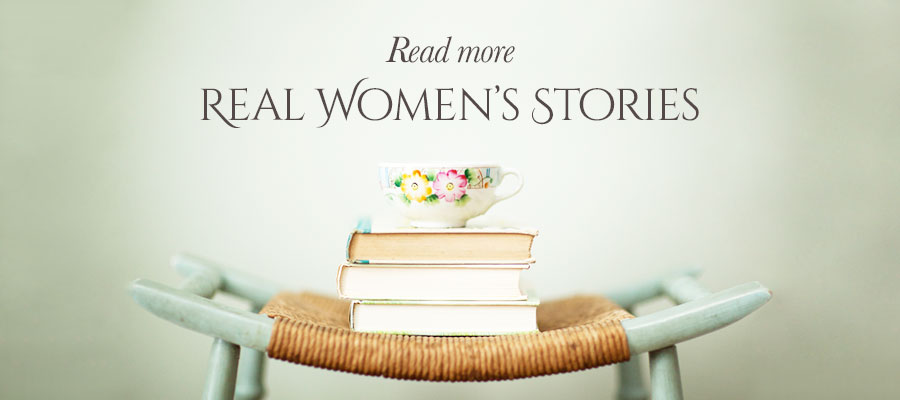
Red Cords Are Supposed To Break
Emptying my closets is a warm-up to letting go of how I want things to be. If things don’t turn out a certain way, then I walk around unhappy. That’s no way to live. Letting go implies loss, but I am not letting go of this life. I’m letting go of control and materialism.
My in-laws hold on to everything. They are not hoarders exactly, it’s just that they have been married for fifty-three years and now they have fifty-three years of mementos and free samples stacked in boxes from floor to ceiling.
Kurt and his siblings take action. “We’re coming to visit and we’re going to help you throw away your stuff,” says Allison, Kurt’s sister.
“Is this an intervention?” asks MJ, their mother.
“Yes, I think so.”
MJ and Rick, their parents, are not crazy people. In fact, they are wonderful: kind and generous, adored by all of their children and grandchildren. I think they feel safe surrounded by objects that they might need someday, like enough ace bandages to mummify a horse, eight sets of margarita glasses, twelve sets of spare sheets, camping gear from the 1950s, and dolls that one of the grandchildren might like someday, never mind that they have all said, no thanks.
The problem is the rest of us don’t know something valuable when we see it. “Why would anyone throw these away?” asks MJ, as she reorganizes a leaning stack of paper napkins and salt packets from Olive Garden restaurant. She likes caring for things that others just toss carelessly away. In one cupboard, there are dozens of hotel-room shampoo bottles, cardboard boxes in all sizes and shapes, and an antique cheese grater that doesn’t grate cheese.
They hold onto food, too. On this trip, MJ hands me a yogurt.
“But it expired two months ago,” I say.
“It’s fine. The expiration date is just a suggestion,” she waves me off like I am a fly. I sniff the yogurt.
“Besides, I took one of those yogurts to work yesterday and look at me, I’m perfect.” She’s right; she looks a little like Angela Lansbury. She is beautiful and elegant. Only, MJ has to use a wrist brace to support the weight of her Super-Big-Gulp-Plus plastic mug of day-old coffee.
Once, my father-in-law was sick for two days; he couldn’t get out of bed.
“Do you think it’s the flu?” Kurt asks.
“No, I’m pretty sure I ate something bad,” answers Rick in a hoarse whisper.
“How do you know?”
“Well, there were hot dogs sitting out for awhile. I ate one and it tasted a little off.”
“But you ate it anyway?” asks Kurt.
“Yeah. But the second one was even worse,” says Rick, unfazed.
When we arrive in Tucson, all ready to swoop in and save the day, the joke’s on us. MJ and Rick’s home is spacious and spotless. The closets are full of empty boxes. Apparently the threat of an intervention was enough. They worked for weeks to de-clutter, letting go of everything. In the process, they found out what they want to do with their time. Rick wants to re-build his old Jeep. MJ wants to write down the stories of her life for her grandchildren.
Instead of cleaning, we spend the weekend sitting and walking together, just happy to be in one another’s company. We eat pie, watch a nesting pair of Cooper’s hawks, and tell stories that make us laugh so hard that some of us pee our pants. It’s a gift to be able to focus on our relationships instead of on all that stuff.
Back at home, I am inspired. If they can do it, so can I! I start with the tangle of ski gear, ice skates, and running shirts, then turn my attention to the overstuffed bookcases, bathroom cupboards, and bedroom closets. I donate at least ten extra-large garbage bags of clothes, ski boots, books, and costumes from my collection. It’s easy to let go of the old, the dusty, and the no-longer-useful, but it’s a lot harder to let go of gifts and things I once loved: a jacket I won in a running race, the jewelry box I was given at graduation, a book of Annie Dillard essays. Gone, gone, gone. I feel a weight lift from my shoulders. I unsubscribe from dozens of email newsletters and web accounts. Then I pay my son to go through thousands of photos on our computer and make eight photo books with one hundred photos each; one book for each of the last eight years. I frame and hang the very best pictures and delete the rest. I want to make the things I love more visible and let go of everything else. The idea is simple: spend time enjoying life instead of organizing it.
Nine months ago I was diagnosed with a brainstem tumor. After surgery and radiation, the remaining bits of tumor are likely dormant and should stay that way for decades. Yet there is this unpleasant game of being scanned every few months to see if things are quiet or if the mass is growing or spreading. Between those scans, my doctor says, “Live your normal life.” But it’s difficult to relax. I realize I have been holding my breath for months, wondering what my future holds. With all of this tidying up, I wonder, am I cleaning out my closets or am I preparing for death?
For now, I’m accepting that at some point I will die and I will not need all this stuff. Nor do I want to leave it for my children to have to manage. Letting go is not the same as resignation. I’m choosing acceptance over resistance. In letting go, I don’t feel loss, I feel free.
The Tibetans have a meditation practice called Tonglen. “Tong” means letting go and ‘len” means accepting. Essentially, you inhale and accept what is. Then you exhale and let go. Here’s the thing: some teachers describe it as breathing in the bad and breathing out the good. It’s the opposite of what I am inclined to do. My tendency is to want to build a moat around everyone and everything that I love and guard them. I want to keep everything good on the inside of the moat, and put everything bad on the outside. But the Tibetans understand that the problem is not the bad stuff, it’s our desire to control our surroundings as if we could somehow slip by death and suffering without being touched.
I thought I was doing well at letting go until yesterday. I have a red, woven bracelet around my right wrist. It’s really just three threads braided together, no thicker than a hair tie. It was given to me by my Cambodian friend, Cho, four years ago. He had it blessed by a monk to wish me safety and health on my journeys ahead. Back then, my journeys were out there, traveling the world, guiding students and teachers. Now my journeys are inward as I learn to let go of my attachment to control and well, things.
The red fibers are fraying. Every time I go through a procedure at the hospital, I read the thinning threads like lines on my palm. I am somehow convinced that possessing the bracelet is what gives me strength and vitality. Is the red cord still there? Good. I’m alive.
This week I pick up my daughter from school and when I look down at my wrist, the red cord is gone. I have a strange sense of relief. It’s gone, and I am still standing. I am no longer counting on something external to tell me how I feel on the inside.
“Red cords are supposed to break,” my friend Christine explains when I tell her about my playground tragedy. “When it’s gone, it means that you are a different person who has integrated the insights you needed to learn.” She’s right, I am a completely different person than I was four years ago. I am different than I was nine months ago.
Inside me, there is a tender transformation happening: away from stuff, towards what really matters: relationships and contributing to the greater good. My in-laws’ courage is allowing me to empty my closets and treasure every conversation. The change feels really good. I am learning that I need less and less material shit to be happy.
Before, I was trying to hold on to as much as I possibly could in case I needed it someday. I thought I was keeping pain and suffering at bay. I wanted to hermetically seal moments of health and happiness and safety. I was fine letting go of things that I didn’t really care about, but during this purge of things, I went deeper. I put a lot of good out the door and discovered that there is a lot more goodness where that came from.
Now, if we could only get Grandma to let go of those yogurts…

Storykeeper: Susie Rinehart
Susie Rinehart is an award-winning writer, a global educator, a community activist, a mother, and a brainstem tumor survivor. She writes about how she had to abandon safety to risk living the life she wanted to lead. For 23 years, she traveled the world as a professional guide and teacher. Now her journeys are inward as she lets let go of worry and fear to find joy and radical compassion.


